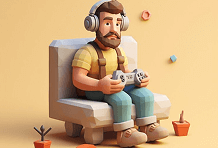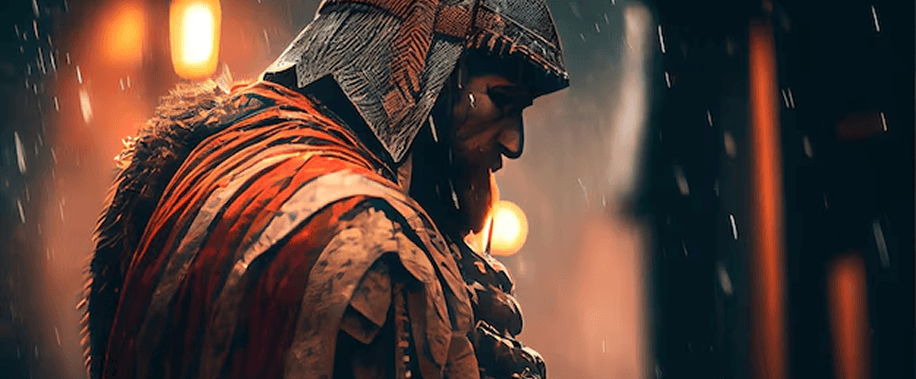
VR Game
Shaping Immersive Realities with World-Class VR Game Development
We are passionate about developing ground-breaking virtual reality games that immerse players through the combination of storytelling, interactivity, and immersive technology into coherent digital experiences.

12+
Years of Expertise
50+
Projects Completed
10M+
Game Downloads

Our End-to-End VR Game Development Services
We have an expert team of top VR game developers, designers, and 3D artists who work together to create engaging performance-optimized VR games that match the current dynamic gaming requirements.
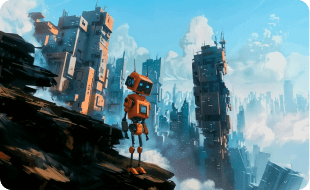
VR Game Development
We create the newest and the most captivating VR games of various genres, including action, puzzle, adventure, simulation, and others, created on such platforms as Oculus Quest, HTC Vive, and PlayStation VR.
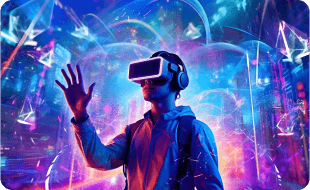
Immersive VR Environment Design
We create fully immersive virtual worlds, full of detail and are stimulated to be easy to navigate and realistic. The VR landscapes we create are spatial accuracy and lighting dynamics, and sensory depth optimized to ensure user engagement.
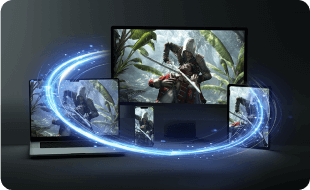
Full-Scale VR Integration
Our development team ensures the coherent implementation of VR-specific controls and features, including gesture-based input, motion tracking, haptic feedback, and room-scale play, to make the game more immersive and allow players to feel freer in the game world.
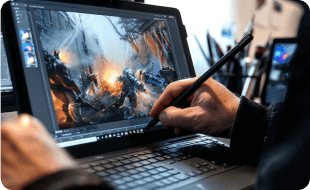
Cross-Platform Compatibility
Whether it is PC VR systems, or standalone headsets, or console-based VR platforms, we can make sure that your game feels great with performance optimization, resolution scaling, and adaptive UI/UX across devices and input types.
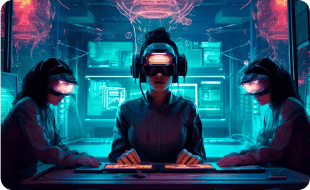
LiveOps for VR Games
We follow LiveOps strategies that are tailored towards VR games and provide real-time content updates, gameplay balancing, timed events and user feedback loops to optimize player retention and in-game monetization.

VR Game Prototyping
Our VR prototyping services allow us to build interactive bridges between ideas, mechanics, and real-life conditions in virtual space, allowing us to test concepts and mechanics and hone them to perfection.

VR Game Porting & Optimization
Be it a port of a legacy title or a way to increase the audience of your game, our team of porting specialists will make sure that it is playable across platforms, with improved graphics and performance efficiency, low latency, and a minimal risk of VR motion sickness.

Character Modeling for VR
We create and rig realistic 3D characters which act realistically in immersive setups. We construct our character models with responsiveness, visual fidelity and physical interaction in mind, so they feel alive in VR.

Realistic 3D Rendering & Animation
We are specialized in providing premium 3D rendering and animation sequences to be used in virtual environments. Whether it is the capture of fluid motion or dynamic lighting, we make sure that your VR game is visually appealing and efficient.
Our VR Game Advantage
Why Choose Our VR Game Development Studio?
Searching to find an imaginative team that not merely comprehends immersive gameplay but also tests the limits regarding what can be executed in virtual reality? We are a VR game development studio believing in the next-gen emotionally engaging and technically empowering VR games. Building a first-person adventure, an educational simulation, a multiplayer VR game - whatever you can imagine, we assist you in turning your wildest ideas into playable virtual reality.








Bring Your VR Game Vision to Life: End-to-End Development Process
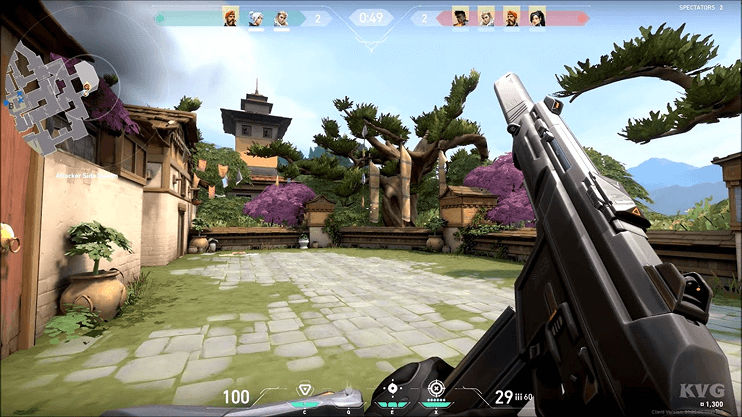

Ready to Build Your Next VR Gaming Masterpiece?
Join us in shaping the future of gaming at StrikeOneStudios a virtual reality vr games development company, where we are a trusted partner to create daring, engulfing, and expandable VR game experiences. Virtual reality world? Let us make one that will really impress your readers. Call today to get started!
Get Started

Getting Started with VR Game Development

How Much Time Does It Take to Develop a VR Game?
The estimation time to develop a vr game relies on numerous variables such as the complexity of the game, its genre, the targeted platforms (e.g. Oculus Quest, HTC Vive, PlayStation VR), interactivity, graphical fidelity, and whether it includes advanced features such as multiplayer support or AI-powered mechanisms.
The simplest VR game (a single level, a few interactions, few environments) can expect an average development time of between 3 and 6 months. Such projects usually include fundamental gameplay mechanics, simple UI/UX design in VR space, minimal storytelling, and responsible performance, which should guarantee a comfortable experience to the user.
But when it comes to feature-complete VR games, which might feature large virtual worlds, custom-made 3D assets, voice communication, sophisticated physics, narrative gameplay, and/or blockchain or AI integration, the process might take 12 to 24 months or longer. This encompasses development stages of ideation, prototyping, 3D development, scripting, animation, VR input mapping, quality assurance testing, and publishing on various platforms.
Additionally, it takes longer when the game must support cross-platform features or LiveOps and analytics implementations, multiplayer lobbies, or downloadable content (DLC). Comfort and smoothness of movement are also our priorities in order to prevent VR-induced discomfort, which in many cases requires the extra rounds of testing.
Our studio adheres to an agile, milestone-based model which provides consistent feedback and demonstrates the clear progress with the possibility to scale your VR game development experience according to your ambitions and budget.
How Do VR Game Development Services Add Value to My Project?
Could it be a cutting-edge VR experience that will change the way users interact with digital spaces? When you collaborate with an experienced VR game development studio, your project gets a major advantage, whether it is technical innovation, creative implementation, smooth deployment, and future scale. Services we provide do not simply entail coding a game: we create a long-term experience, an immersion, something your prospective users will identify with.
Here’s how our professional VR game development services maximize the value of your project:
- Immersive User Experience
- Cross-Platform VR Compatibility
- Scalable Architecture for Future Expansion
- Custom Gameplay Features
- Future-Ready Game Development
Our VR spaces are designed to be visually, acoustically, and tactilely engaging and highly immersive to players. We create immersive experiences that are memorable and intuitive, through realistic physics, gesture controls, intelligent UI, dynamic lighting, and sound-spatial layering, whether in entertainment, training simulation, and virtual events.
We develop our games to be compatible with all the main VR headsets and platforms such as Meta Quest 2/3, HTC Vive, Valve Index, Oculus Rift, PlayStation VR, and SteamVR. That is, your game will be device-optimized and will have performance-optimized code, which guarantees a fast and consistent experience across all the devices your users choose to play your game on.
The backend and logic of the game are designed in a modular way, which means that it will be uncomplicated to create additional levels, implement multiplayer mode, new APIs, or adjust to possible hardware improvements in the future. Our codebase is designed to scale with your plans, whether you want to begin with a small scale or want to go all-out and launch with a full-scale universe.
Whether it is motion-capture-driven animations and haptic feedback solutions, AI-powered non-player characters, gamified learning systems or blockchain-powered achievements we design gameplay systems to fit your vision. The VR game you will develop will have special brand-specific interactions that will create a high level of player stickiness and brand recall.
VR technology is rapidly developing, and we make sure that you are one step ahead. The features and trends our team utilizes includes cloud-based VR distribution, WebXR compatibility, AI-driven environments, and mixed reality integrations, which not only make your game a success during launch but also going forward as the industry evolves.
What Technologies and Tools Are Used in VR Game Development?
To develop an entertaining VR game, a stack of the latest technologies, game engines, frameworks, and design patterns is needed much more than an exciting story and artistic brilliance. Being a professional VR game development studio, we create immersive and high-performance virtual reality experiences cross-platform by using a broad range of various tools.
Here’s a comprehensive overview of the core technologies and tools we utilize:
Game Engines
- Unity 3D – Our go-to choice for most VR projects. Unity already has an enormous ecosystem of VR SDKs, native XR plugin architecture, and real-time rendering with broad support of mobile VR devices such as Oculus Quest.
- Unreal Engine – The most popular engine with a high-fidelity render, photorealistic image quality, and Blueprints system. Best suits cinematic VR and AAA quality games. Unreal is especially strong when VR projects require very detailed environments, dynamic lighting, or intricate particle systems.
VR SDKs & APIs
- OpenXR – An open royalty-free standard, which allows access to VR and AR platforms, and devices. We adopt OpenXR to simplify our development with various hardware systems.
- A few of the frameworks we employ to optimize input, controller tracking, spatial movement and VR UI developments consist of Oculus SDK, SteamVR SDK, VRTK (VR Toolkit) and XR Interaction Toolkit.
3D Modeling & Animation
- Blender, Autodesk Maya, and 3ds Max – Used to create lifelike character models, environments, and props.
- Mixamo, Adobe Fuse, and MotionBuilder – Helpful for rigging, animating, and motion capturing.
- Substance Painter & Designer – Textures 3D models in order to make our environments much more visually stimulating.
Audio & Spatial Sound
- FMOD and Wwise – Spatial audio generated with the aid of these tools creates a response to the environment, making the player experience the space they are in.
- Steam Audio – The plug-in model simulates the propagation and occlusion of sound, adding realism to the audio in your game.
Testing & QA Tools
- To test and optimize the performance of the game and the comfort level, we use Profilers, Debuggers, VR-specific QA tools such as Oculus Performance Heads-Up Display (HUD), Unity Profiler, and frame rate analyzers.
Security & Networking
- When it comes to multiplayer VR or games that have in-game purchases and tokens, we reach for Photon, Mirror, and PlayFab and connect them safely to backend services, which guarantees reliable performance. We never have a fixed technology stack; we embrace new tools, change our development environment on a regular basis, and pursue leading-edge trends, like hand and eye tracking, XR cloud streaming, and AI-based procedural content generation.
What Industries Can Benefit from Custom VR Game Development?
VR games are not only restricted to the entertainment industry anymore, but it is currently revolutionizing industries like healthcare, education, real estate, defense, fitness, marketing, tourism, and enterprise training. A bespoke VR game can serve as a training simulator, an educative tool, a marketing tool, and even a therapeutic platform.
Here’s how VR game development is revolutionizing industries:
- Education & E-Learning
- VR games may be immersive, simulating the complicated scientific phenomena, historical events, or engineering models, in the visual and interactive form.
- With active participation students are able to retain more as compared to passive reading.
- VR allows creating gamified modules that are used by institutions to increase engagement and test retention.
- Fitness & Wellbeing
- Physical activity is encouraged through VR games such as boxing, rhythm-based dancing, or obstacle challenges.
- Gamifying workouts makes fitness enjoyable and addictive.
- Applications may feature real-time calorie counter, heart rate synchronization and progress statistics.
- Healthcare
- Therapeutic VR games are being used to treat phobias, recover PTSD, distract pain and motor recovery.
- Physical therapy activities that have been gamified assist patients to carry out the movements in a more captivating and less frightening manner.
- Corporate Training
- VR training simulations are being used by companies to educate employees in hazardous conditions, emergency scenarios, as well as in soft skills such as negotiation and empathy.
- Compared to physical drills, VR training results in higher retention and gets rid of the risk factor, all whilst being cost-effective.
- Corporate Training
- VR training simulations are being used by companies to educate employees in hazardous conditions, emergency scenarios, as well as in soft skills such as negotiation and empathy.
- Compared to physical drills, VR training results in higher retention and gets rid of the risk factor, all whilst being cost-effective.
- Retail & Marketing
- Customers can be involved in virtual showrooms, pop up brand experiences or try before you buy demos with gamified VR experiences.
- It creates brand recognition and extended engaging time with a service or product.
- Travel & Tourism
- Travel firms develop interactive vr game development, which enable users to visit a destination before making a reservation.
- It is possible to recreate historical sites in-game and have the experiences of time traveling.
Simply put, every industry that enjoys the advantages of interactive participation, visualization as well as real-time decision making can utilize VR game development to reimagine the way individuals learn, interact, and experience.
What Makes a VR Game Truly Engaging and Successful?
To succeed in VR game development, it is not enough to make the graphics flashy—the sense of presence of the player, the quality of interaction, and the feeling of the immersiveness of the world are what matters. A combination of emotional involvement, narrative richness, fluidity of interactions and physical comfort is what we rely on to develop VR games that are special and memorable.
Here’s a breakdown of the pillars that define a truly engaging VR game:
- Immersion and Presence
- Natural movement mechanics like teleportation or smooth locomotion
- Room-scale tracking to reflect real-world motion
- High frame rates (typically 90 FPS or above) to prevent motion sickness
- Haptic feedback integration to simulate texture and interaction
- Emotional Engagement
- Full hand interaction using VR controllers
- Environmental manipulation (e.g., grabbing, pushing, throwing)
- Real-time voice commands or gaze-based interactions
- Consequential decision-making that shapes narrative or gameplay
- Minimizing acceleration and motion lag
- Providing “comfort settings” for sensitive users
- Designing static UI elements anchored to user view
- Calibrating spatial audio accurately
- Replayability & Progression
- Procedural levels and AI variation
- Gamification strategies (points, levels, achievements)
- DLC-ready frameworks for future content drops
- Leaderboards, quests, and missions
This is the core of any VR experience. We create sets that fool the brain into thinking that it is there. In order to achieve this we emphasize:
It can be a hectic shooting experience or a relaxed puzzle-filled world but emotions have to be elicited. We lay out plot lines, visual style, sound effects, and non-player character (NPC) actions to create particular emotions, curiosity, joy, fear, or suspense.
Player Agency
Games must be interactive, not passive. We enable:
Comfort Design
It is essential to the comfort of the players. Our VR UX designers adopt industry best practice to avoid nausea and fatigue. This includes:Social and Multiplayer Elements
The inclusion of real-time voice chat, co-op missions, along with avatar customization further increase the level of engagement by several folds. We create multi-user VR games in which players can interact, co-operate and even compete in the same immersive space.
We encourage long-term retention with:
FAQ
FAQs – VR Game Development Services

Build the Future of Immersive Entertainment with StrikeOneStudios
Whether you're creating a high-stakes action game, a meditative VR experience, or a virtual world to socialize in—StrikeOneStudios is your trusted partner that provides affordable VR game development services for building scalable, secure, and deeply engaging VR games.
Let’s co-create the future of immersive gameplay—get in touch today!








